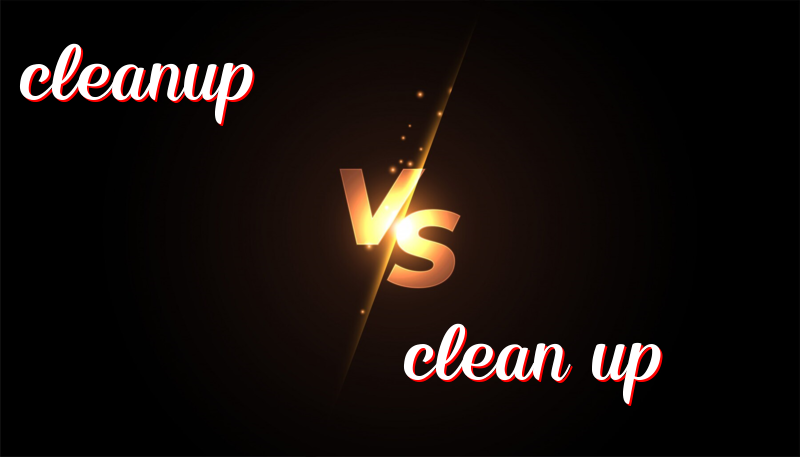Understanding Cleanup vs. Clean Up: Simple Differences and Usage
Difference Between “Cleanup” and “Clean Up”
In English, “cleanup” and “clean up” look alike but have different uses. Let’s learn what they mean and how to remember them.
History of the Words
“Clean up” has been used in English for a long time as two words. It means to make something tidy or free from dirt. “Cleanup” as one word came later, often used in a context where we talk about the act or event of cleaning.
How to Use “Cleanup”
“Cleanup” is a noun. It talks about the event or process of cleaning. It’s one word.
Here are examples:
- We need a cleanup after the party.
- There is a cleanup event at the park on Saturday.
- The cleanup of the beach took all day.
- Mom said the cleanup starts at noon.
- After the storm, a big cleanup was needed.
How to Use “Clean Up”
“Clean up” is a verb phrase. It means to make something clean.
Here are examples:
- Please clean up your room.
- We will clean up after dinner.
- Can you help me clean up the garage?
- They clean up before the guests arrive.
- Please clean up the mess on the floor.
Trick to Remember the Difference
Remember: If you talk about the action, use “clean up.” If you talk about the event or result, use “cleanup.”
Summary
Cleanup: A noun; talks about the event of making something tidy. Use it when describing the thing that happens.
Clean Up: A verb phrase; talks about the action of making something tidy. Use it when describing what you do.

Leave a Reply
You must be logged in to post a comment.